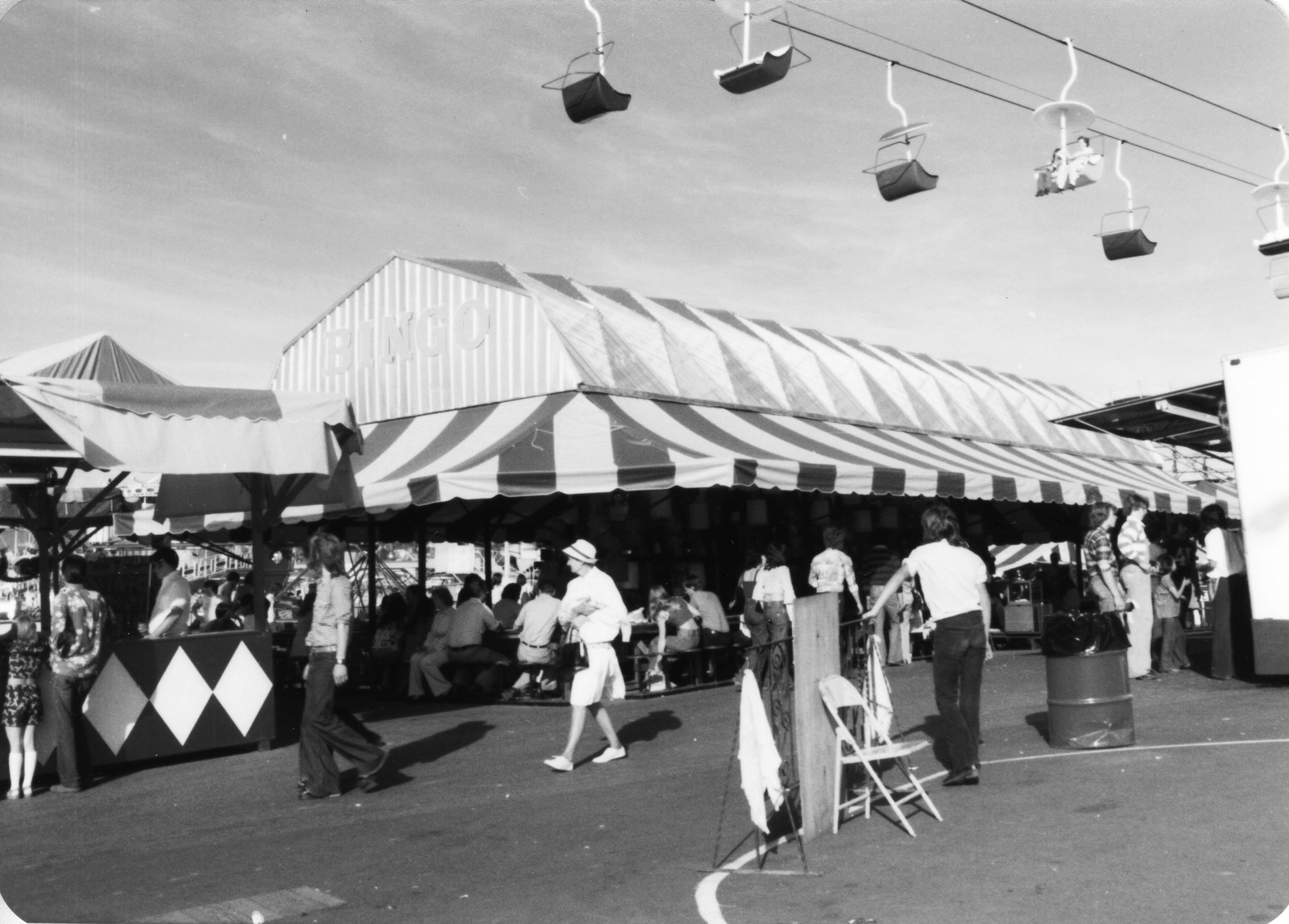A Vancouver tradition since 1910, the Pacific National Exhibition is beloved by many for its amusement park rides, carnival games, farm animals, and miniature doughnuts. Comedian and elementary school teacher Nick Marino shares behind-the-scenes stories from his six summers spent working at the fair in the 1980s in his funny new memoir, East Side Story: Growing Up at the PNE.
Five months after my mom died, when I was thirteen years old, I worked my second summer at the PNE. My dad’s co-worker, Sam, moonlighted managing a bingo tent at the fair and offered me a job. It was a big switch from blowing up balloons all day, and I didn’t have to dodge any darts. The downside, however, was that the clientele in the bingo tent was a lot different from people who tried to win records. Instead of watching teenagers laughing and cheering, I was now serving customers who were either elderly, down on their luck, or both. Rarely did teenage girls come to play bingo. Our tent was used as more of a respite than a destination. Overheated grandmas and their sweaty grandkids would flop down on stools to get out of the sun. Our customers seemed to have given up on the idea that they had any control over their experience at the PNE. It might as well be left to chance, like a goddamned bingo game. The kids at the other games still had hope and joy in them, but bingo players seemed like they were just marking time at a game where one person wins and everybody else loses. Players were either mad at the caller for not saying their numbers, at the winner for taking away their chance at a prize, or at themselves for coming to the fair. I collected their money, sat in my chair, and watched the fair pass me by while the players listlessly marked their cards with the dejected indifference of the nursing sow in the farm building.
On the fifth day on the job, I was offered a chance to make some extra money on a tent-wide scheme. I guess stealing had been such an issue at bingo in the past that a job existed solely to stop employees from pocketing money. It was one person’s responsibility to write down exactly how many cards were sold for each game. At the end of the day, the tally on the sheet had to match the money in your apron. It seems like a good idea in theory, but it just made the crime more organized. Instead of people going rogue and taking random amounts each day, now there was planning and co-operation among co-workers. Whoever was recording that day would quietly go to each collector and decide on how many cards they would leave off the total. That amount of cash would be tucked into waistbands or tube socks. Later, the stolen cash would be divided at a meeting spot in the park. Everyone wanted the recording job because they worked with four collectors, which could be quite lucrative if all of them were on board to skim and split a bit of money.

A bingo tent on the midway. City of Vancouver Archives 180-738.
I was initiated by a blond girl a couple of years older than me. She casually leaned down and said, “Take forty dollars out. I’ll leave it off this sheet. Meet me by the roller coaster after work. Twenty for you, twenty for me.” She delivered all this while looking straight ahead, as if she were passing on the most trivial information and not pulling me back into the paranoia of stealing from work. I nodded and thought about a couple of records I might like to buy with the money. Then I put my hand in my apron and started folding a twenty-dollar bill into a little square with one hand while trying to look casual. When I mentioned this story to my sister, she said she had “learned to do origami” folding bills in her apron when she worked at the fair. I soon learned that every single worker in that bingo tent was in on it. Just a bunch of East Side kids making the most of an opportunity, I guess. There really wasn’t any security at the fair in the early 1980s, so it wasn’t that hard to get away with a scam. If you were subtle, the risk seemed low. There were unsubstantiated rumours, however, that if you did get caught, you would get the shit kicked out of you behind the roller coaster. Although I have since been assured that this wasn’t true, I worried about it each time I slid another twenty-dollar bill into my pocket. In the end, the threat of being beaten and fired didn’t seem to be enough of a deterrent for any of us to stop.
Excerpted with permission from East Side Story: Growing Up at the PNE by Nick Marino. Published by Robin’s Egg Books, 2023. Read more stories about Vancouver history.









